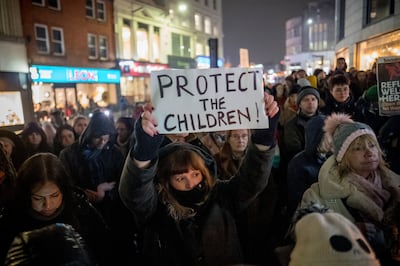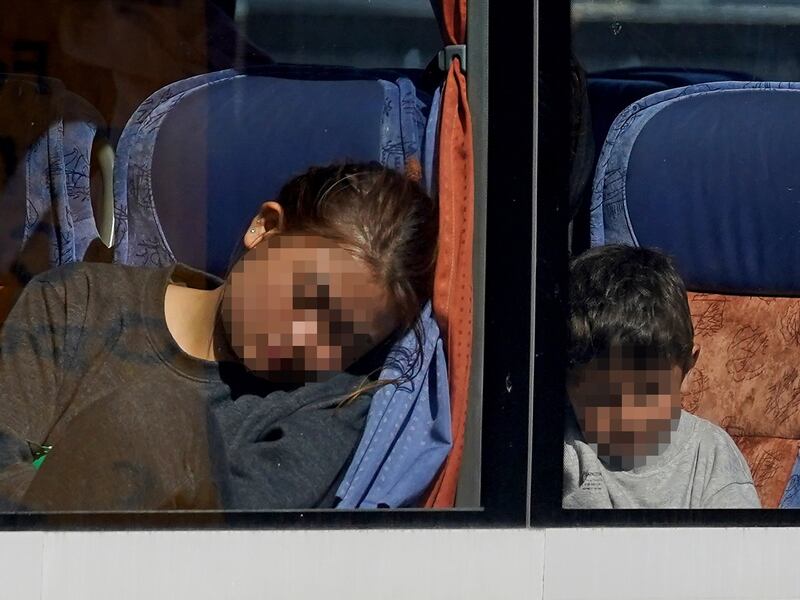Fifty refugee children are missing from a hotel that the British government plans to continue using to house under-18s.
A practice of routinely sending unaccompanied child asylum seekers to hotels has been ruled unlawful, but court documents show the Home Office wants to keep using them.
British authorities face heavy criticism for failing to protect young asylum seekers, many of whom have disappeared, including a child of 12.
Earlier this year it emerged that hundreds of migrant children had gone missing amid fears they have been abducted by criminal gangs.
The figure included 136 who went missing from a single hotel in Brighton, and the High Court in London has now been told many of them remain unaccounted for by the authorities.
In written evidence, a lawyer for Brighton and Hove City Council, Stephanie Harrison KC, said “50 remain missing” from the hotel, where they were placed by the Home Office.
She quoted a witness statement that said the hotel poses “risks of trafficking to unaccompanied children” and that it is not “fit for purpose”.
Ms Harrison was representing the council as an interested party in an action taken by Kent County Council against the Home Office, over what it claims is the unlawful way in which the government manages the way unaccompanied refugee children are housed in Britain.
Kent and Brighton both argue they have to shoulder a disproportionate burden of caring for child asylum seekers due to the Home Office's improper operation of the National Transfer Scheme, meaning many children end up in hotels.
In her submission, Ms Harrison said that after the practice of housing refugee children in hotels was found to be unlawful, Home Secretary Suella Braverman “decided against an exit strategy from hotels” in favour of minimising their use and “even their expansion”.
Ms Braverman is keeping several hotels, including the one in Brighton, “under contract” for use in emergencies.

A hotel in East Sussex has been earmarked for use to accommodate children, some of whom will be under 16, Ms Harrison told the court.
She said lone refugee children are “highly vulnerable” and that many of them “will have a history of torture, mistreatment, abuse, modern slavery and trafficking, including on their journey to the UK”.
Many will have suffered physical and mental illness “and be at risk of further harm through exploitation and/or re-trafficking”, she added.
She said Ms Braverman was unable to “sufficiently safeguard high-risk groups from trafficking”.
Kent was found to be acting unlawfully by routinely housing refugee children in hotels in an action brought by charity Every Child Protected Against Trafficking.
As part of that legal action it emerged that lone refugee children as young as 13 were staying in hotels.
Earlier this year, The National was told that people-trafficking gangs have been using mobile phone trackers to find refugee children staying in British hotels and lure them away.
A representative for The Refugee Council, a non-profit organisation that works with refugees and asylum seekers in Britain, said: “We have seen far too many children being housed in unsuitable hotels outside the child protection system.
“The children we speak to tell us that they feel anxious, scared and lonely in these hotels, and we have grave concerns about their mental and physical health.
“The government has a clear legal duty to protect these children but is failing to do so, with dozens of children seemingly having disappeared into the clutches of those who will exploit and abuse them.”
A Home Office representative said: “Due to the rise in dangerous small boats crossings, the government has had no alternative but to urgently use hotels to accommodate unaccompanied asylum-seeking children while they await placements with local authorities.
“The High Court has upheld that local authorities have a statutory duty to care for all children, including unaccompanied asylum-seeking children, and when a child goes missing, a multi-agency, missing persons protocol is mobilised to establish their whereabouts and ensure they are safe.”






